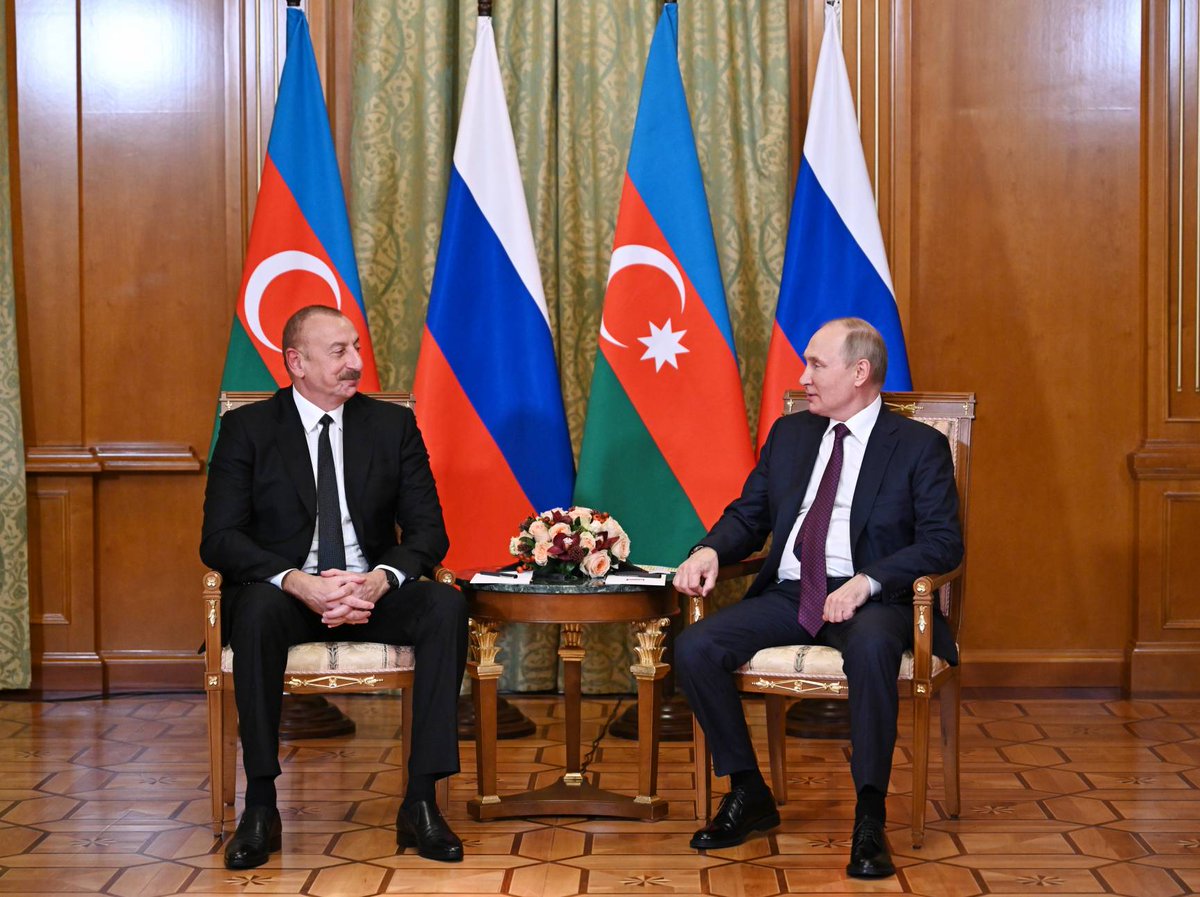🇷🇺 Why Russia Needs the Nagorno-Karabakh Conflict to Stay UNRESOLVED:
Russia has long used the Nagorno-Karabakh conflict not to solve it, but to freeze it just enough to maintain leverage over Armenia and Azerbaijan. Here's an in-depth explanation as to WHY: 👇
Russia has long used the Nagorno-Karabakh conflict not to solve it, but to freeze it just enough to maintain leverage over Armenia and Azerbaijan. Here's an in-depth explanation as to WHY: 👇

1/ 🇷🇺 doesn’t solve conflicts, it manages them just enough to be indispensable.
In Nagorno-Karabakh, 🇷🇺 sells weapons to both 🇦🇲 & 🇦🇿 and positions itself as the only viable “neutral” mediator, while using the unresolved status to justify a military presence in the region.
In Nagorno-Karabakh, 🇷🇺 sells weapons to both 🇦🇲 & 🇦🇿 and positions itself as the only viable “neutral” mediator, while using the unresolved status to justify a military presence in the region.

2/ By keeping the crisis on life support, Moscow ensures that Armenia remains dependent on 🇷🇺 for security guarantees while Azerbaijan continues to tolerate Russian involvement in return for balancing Turkish support. Thus, keeping Western powers out of Caucasus diplomacy. 

3/ The threat of renewed conflict over Nagorno-Karabakh keeps Yerevan tethered to Moscow, afraid to abandon the alliance entirely.
🇷🇺 uses this fear to fiscourage 🇦🇲 from drifting toward EU, US or NATO support pressuring Armenia into accepting Russian military & economic terms.
🇷🇺 uses this fear to fiscourage 🇦🇲 from drifting toward EU, US or NATO support pressuring Armenia into accepting Russian military & economic terms.

4/ 🇹🇷’s growing role in South Caucasus, especially its military alliance with 🇦🇿, threatens 🇷🇺 dominance.
By keeping the crisis active, 🇷🇺 complicates Turkish–Azeri plans, especially the Zangezur Corridor project. Maintaining itself as a counterbalance to 🇹🇷 in the region.
By keeping the crisis active, 🇷🇺 complicates Turkish–Azeri plans, especially the Zangezur Corridor project. Maintaining itself as a counterbalance to 🇹🇷 in the region.

5/ The uncomfortable truth for Moscow is this:
>A genuine peace deal between Armenia and Azerbaijan.
>Full normalization between Armenia and Turkey.
>Western/EU-led diplomatic frameworks replacing Russian ones.
…would mean that 🇷🇺 becomes irrelevant in the South Caucasus.
>A genuine peace deal between Armenia and Azerbaijan.
>Full normalization between Armenia and Turkey.
>Western/EU-led diplomatic frameworks replacing Russian ones.
…would mean that 🇷🇺 becomes irrelevant in the South Caucasus.
6/ So while Russia may host talks and release statements, it has no incentive to see a final, stable resolution.
@threadreaderapp unroll
• • •
Missing some Tweet in this thread? You can try to
force a refresh

















